Written By Alex Barrientos, Associate Editor, Classical Wisdom
Resolutions are notoriously difficult to keep. It’s why we joke and tease about the fact that gyms tend to be packed in the beginning of January but return to normal by February. Whatever motivation there was seems to fade, and the resolution with it.
But just because they’re tough to keep doesn’t mean resolutions are wrong to make. In fact, I think it is good to challenge ourselves to improve our lives, whether it be a physical change for the better such as getting in shape, or a mental/psychological improvement such as overcoming bad habits or forming better ones.
“We utterly eliminate bad habits like wicked men who have been doing great harm to us for a long time.” ~ The Vatican Collection of Epicurean Sayings
With that said, I want to provide you with several possible resolutions to make for 2020. These resolutions stem from the philosophy of Epicurus, and I believe them to be not only wise but practicable as well. After all, what’s the point of a resolution that you can’t at least try to carry out!?

A bust of Epicurus
1. Lie a little less
“It is impossible for the person who secretly violates any article of the social compact to feel confident that he will remain undiscovered, even if he has already escaped ten thousand times; for right on to the end of his life he is never sure he will not be detected.” – The Principal Doctrines
Okay, maybe you don’t lie a lot. But we could all lie a little less.
And look, there’s nothing wrong with a little lie here and there, especially the harmless ones—like lying to a friend or relative about throwing them a surprise party.
Yet, lies aren’t only harmful to the person lied to, but to the liar’s peace of mind as well. As Epicurus pointed out, the liar can never feel confident that he will remain undiscovered, he will never be sure that he will not be detected.
So long as the risk of being discovered exists, as it inevitably will, the liar can never enjoy peace of mind or tranquility. He will always live in fear of being found out.
“Let nothing be done in your life which will cause you to fear if it is discovered by your neighbor.” ~ The Vatican Collection of Epicurean Sayings
Thus, for Epicurus, it is in our own interest not to lie. So, if not for the sake of others, then for the sake of peace of mind, try to lie a little less!

A bust of Epicurus
2. Keep life simple
“By pleasure we mean the absence of pain in the body and of trouble in the soul.” ~ Letter to Menoeceus
In our consumer culture we think of pleasure all wrong. For us moderns it seems too often the case that we think the more we have the better: the more money, the more cars, the more houses, the more clothes, the more shoes, the more technology, etc.
All this in pursuit of happiness. But does it make us happy? Are we ever truly satisfied?
Epicurus’s answer: a firm NO.
Why? Because,
“Nothing is enough to someone for whom enough is little.” ~ The Vatican Collection of Epicurean Sayings
When assessing our desires, Epicurus recommended asking the following question: “what will happen to me if what is sought by desire is achieved, and what will happen if not?”

Busts of Epicurus, Aristotle, and Socrates at the MET, New York City.
If we honestly answer this question regarding our desires we’ll see that, for the most part, the desires we obsess about and try to fulfill either only lead to the need to fulfill further desires, or to more pain than whatever momentary pleasure we may enjoy.
“No pleasure is a bad thing in itself. But the things which produce certain pleasures bring troubles many times greater than the pleasures.” ~ The Principal Doctrines
For Epicurus, pleasure is something altogether different. It consists simply in “the absence of pain in the body and of trouble in the soul.”
How do we achieve such an absence in both the body and the soul?
Well, for one, we must reflect on the fact,
“[T]hat of desires some are natural, others are groundless; and that of the natural some are necessary as well as natural, and some natural only. And of the necessary desires some are necessary if we are to be happy, some if the body is to be rid of uneasiness, some if we are even to live.” ~ Letter to Menoeceus
Some of our desires are groundless and to be ignored. But there are natural desires as well, that is, desires that are naturally occurring and are natural to have. Of this class there are certain necessary desires: some that are necessary for happiness, some that are necessary for the body to be rid of uneasiness, and some that are necessary for survival itself.

Me with the busts of Epicurus, Aristotle, and Socrates at the MET, New York City.
Once we’ve reflected on these things and gained a clear understanding of them, we will, he thinks,
“[D]irect every preference and aversion toward securing health of body and tranquility of mind, seeing that this is the sum and end of a happy life.” ~ Letter to Menoeceus
Learning to distinguish which of our desires are both necessary and natural is an important step to happiness for Epicurus, considering the role desire plays in our lives. We often think the fulfilling of our desires will invariably lead to pleasure and ultimately to happiness.
But if pleasure consists in the absence of pain in the body and of trouble in the soul, then we see that only a small subset of our desires actually contributes toward happiness.
For Epicurus, we could be, and should be, content with much less than we typically are.
“The cry of the flesh: not to be hungry, not to be thirsty, not to be cold. For if someone has these things and is confident of having them in the future, he might contend even with Zeus for happiness.” ~ The Vatican Collection of Epicurean Sayings
This is advice that even the Stoic rivals to Epicurus agreed with:
“It is not the man who has too little who is poor, but the one who hankers after more.” ~ Seneca, Letters from a Stoic
“[B]ecoming accustomed to simple, not extravagant, ways of life makes one completely healthy, makes man unhesitant in the face of life’s necessary duties, put us in a better condition for the times of extravagance that occasionally come along, and makes us fearless in the face of chance.” ~ Letter to Menoeceus

The Thinker in The Gates of Hell at the Musée Rodin
3. Start studying philosophy… NOW!
“Let no one be slow to seek wisdom when he is young nor weary in the search thereof when he is grown old. For no age is too early or too late for the health of the soul. And to say that the season for studying philosophy has not yet come, or that it is past and gone, is like saying that the season for happiness is not yet or that it is now no more.” ~ Letter to Menoeceus
It’s never too late to study philosophy, and it’s never too early either. So what’s the hold up? If the health of the soul is at stake, why put it off any longer?
“Come on,” you might be saying, “the health of the soul!? That sounds like a bit of an exaggeration.”
I understand your skepticism. But hear me out.
The kind of fears that contribute to a troubled soul,
such as fear of the gods and fear of death, require an understanding of nature to be overcome. Lucretius, a Roman disciple of Epicurus, thought these fears were the source of superstition—and that superstition is not only used by religious prophets to intimidate people, but also that it “is the mother of sinful and impious deeds.”

Translation of On the Nature of Things, by John Creech, 1683.
According to Lucretius, we “are haunted by the fear of eternal punishment after death” because we “know nothing of the nature of the spirit.” It is by studying the nature of things that we are to overcome such fears. As he put it,
“This dread and darkness of the mind cannot be dispelled by the sunbeams, the shining shafts of day, but only by an understanding of the outward form and inner workings of nature.” ~ On the Nature of the Universe
Indeed, Epicurus would have resonated with these words. In his Letter to Herodotus Epicurus writes,
“I recommend constant activity in the study of nature; and with this sort of activity more than any other I bring calm to my life.”
The philosopher, the Epicurean sage, is not simply a philosopher but a student of nature—or rather, to be a philosopher, according to Epicurus, is to be a student of nature.
It is by reflecting on the nature of things with the aid of philosophy that one comes to an understanding that the gods are not to be feared, since common sense tells us they are “immortal and happy”, and such beings would not disturb the peace in which they dwell by pestering with the affairs of men; it further brings us to understand that death is not to be feared since “good and evil imply awareness, and death is the privation of all awareness.” How can we fear that which has nothing to do with us?
“Death, therefore, the most awful of evils, is nothing to us, seeing that, when we are, death is not come, and, when death is come, we are not. It is nothing, then, either to the living or to the dead, for with the living it is not and the dead exist no longer.” ~ Letter to Menoeceus
Along with overcoming these fears, there are positive lessons to be learned from philosophy such as the value of friendship or the importance of gratitude; or, as was discussed earlier, why lying is rarely a good thing, and that only a small subset of desires truly contribute toward pleasure and happiness.
It is not only the attainment of these lessons that is enjoyable through philosophy, but the study of philosophy itself.
“In all other occupations the fruit comes painfully after completion, but in philosophy pleasure goes hand in hand with knowledge; for enjoyment does not follow comprehension, but comprehension and enjoyment are simultaneous.” ~ The Vatical Collection of Epicurean Sayings
So, don’t delay! The health of the soul is nothing to put off.



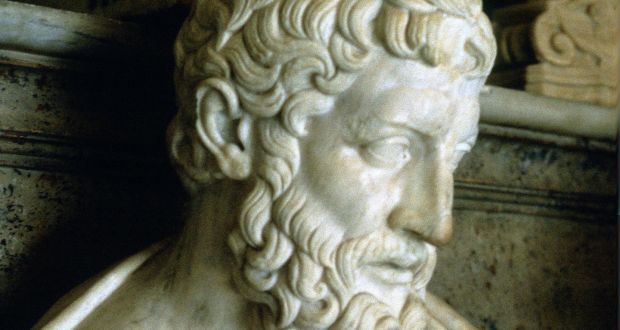
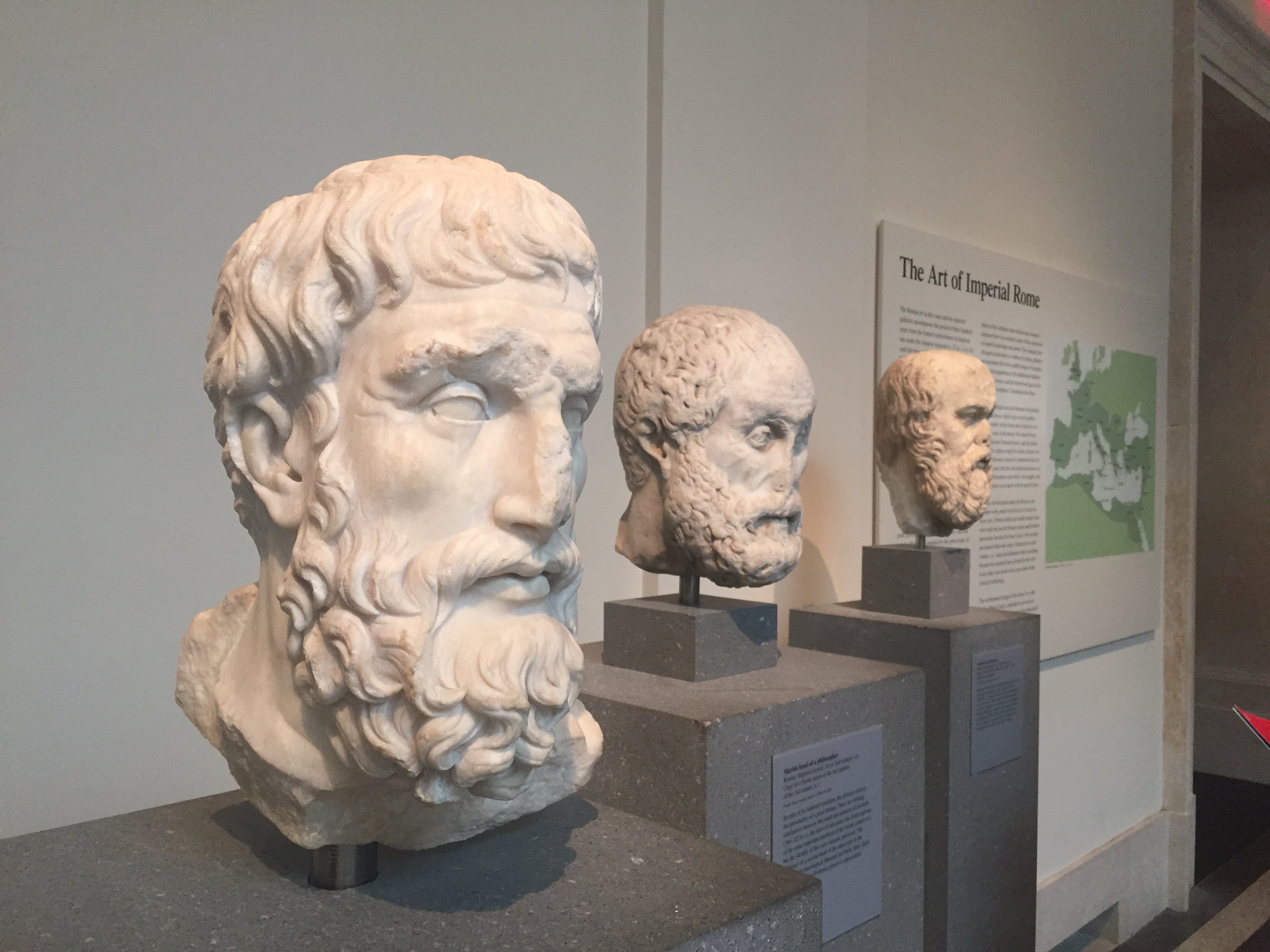
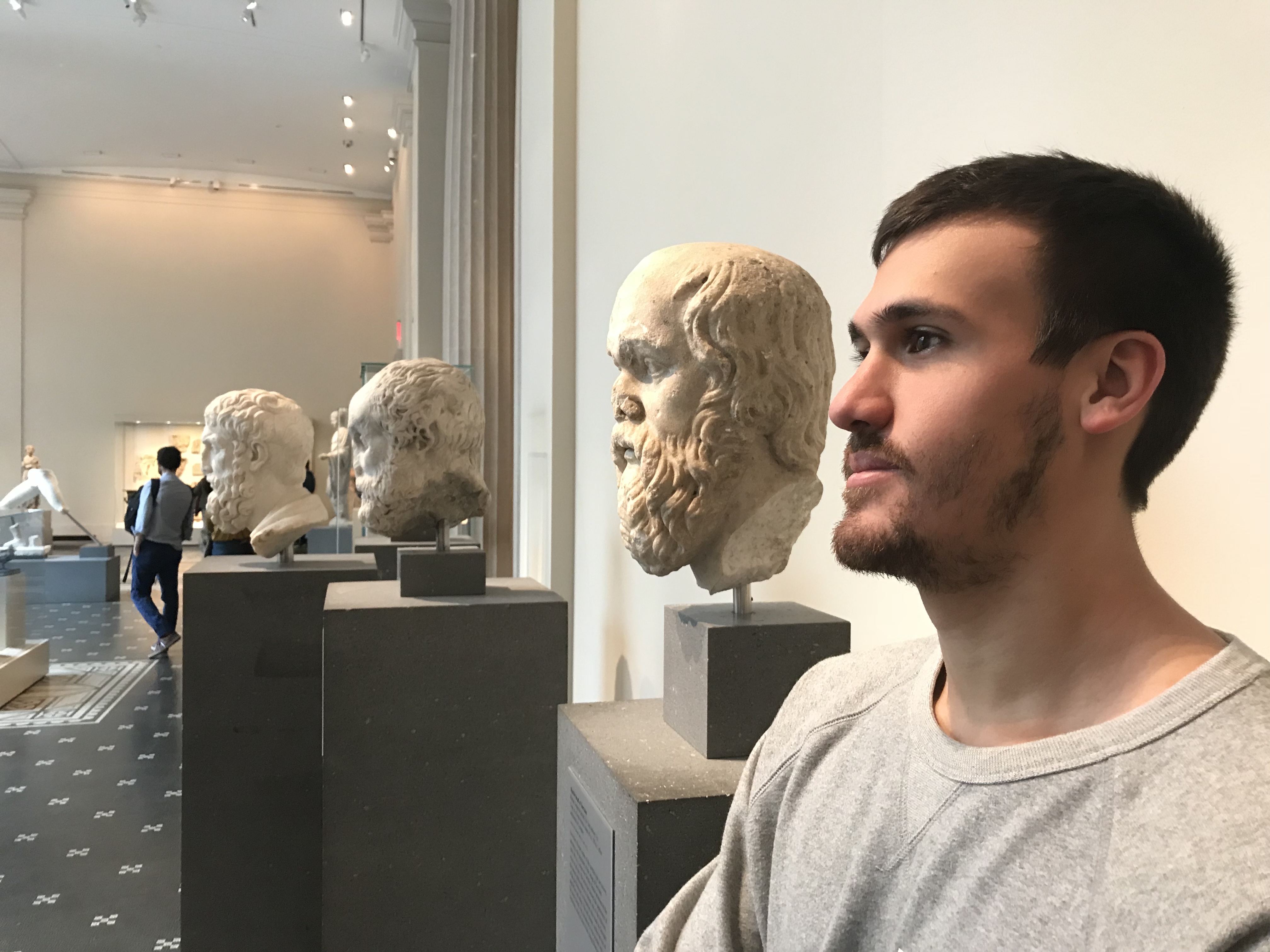

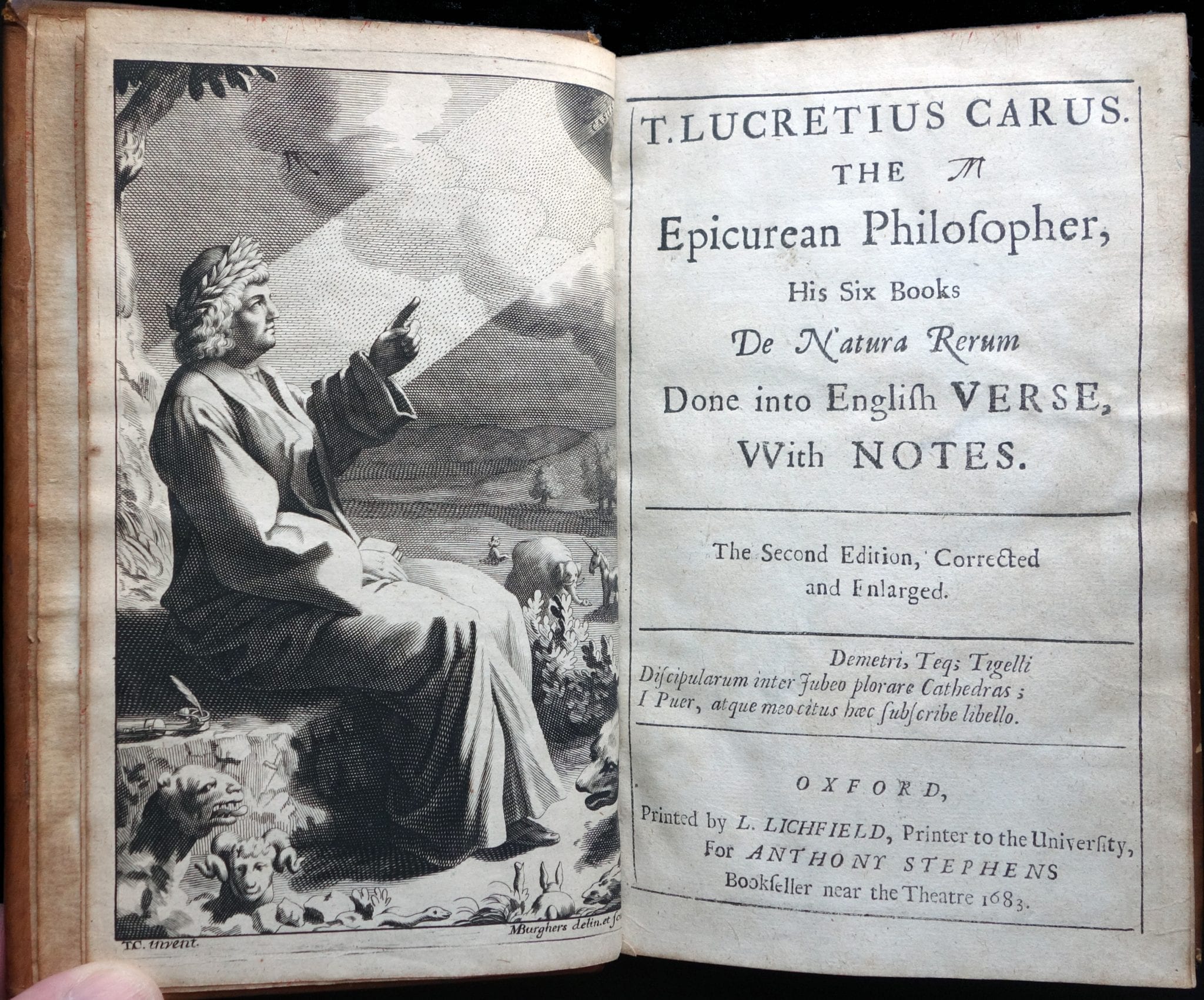
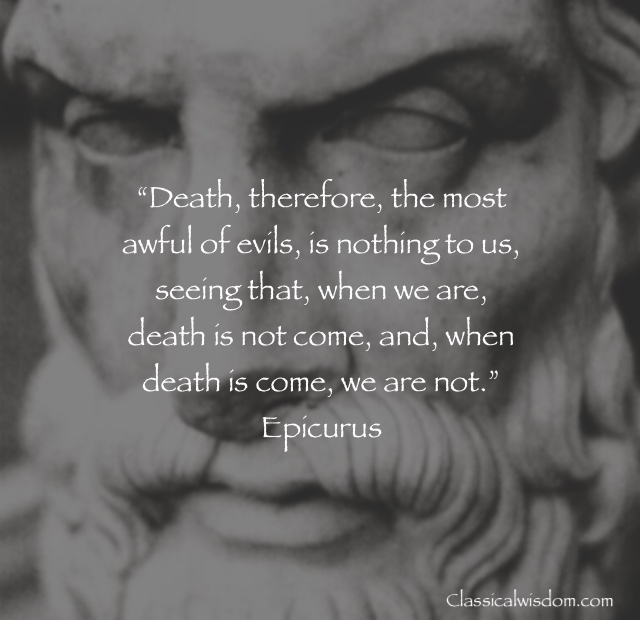








One comment
There is a most wonderful book about Lucretius and his poem, and about Epicurus. It’s called “The Swerve”. Here’s a link:
https://www.amazon.com/Swerve-How-World-Became-Modern/dp/0393343405
Our apologies, you must be logged in to post a comment.